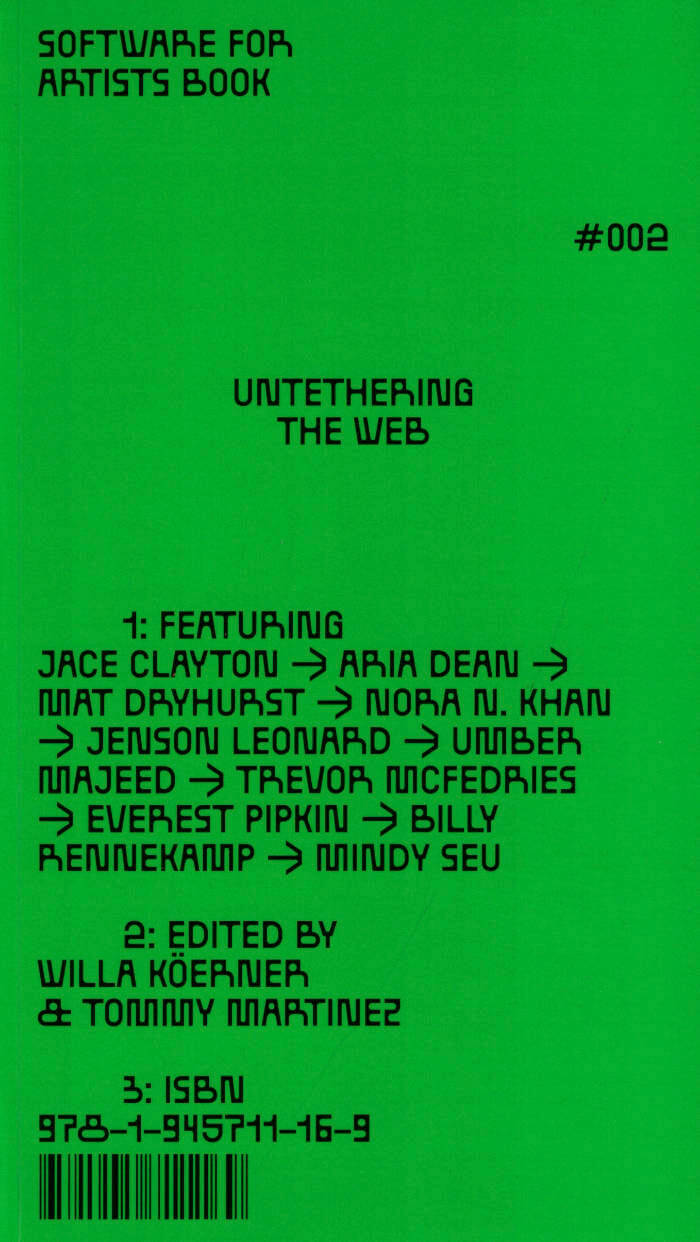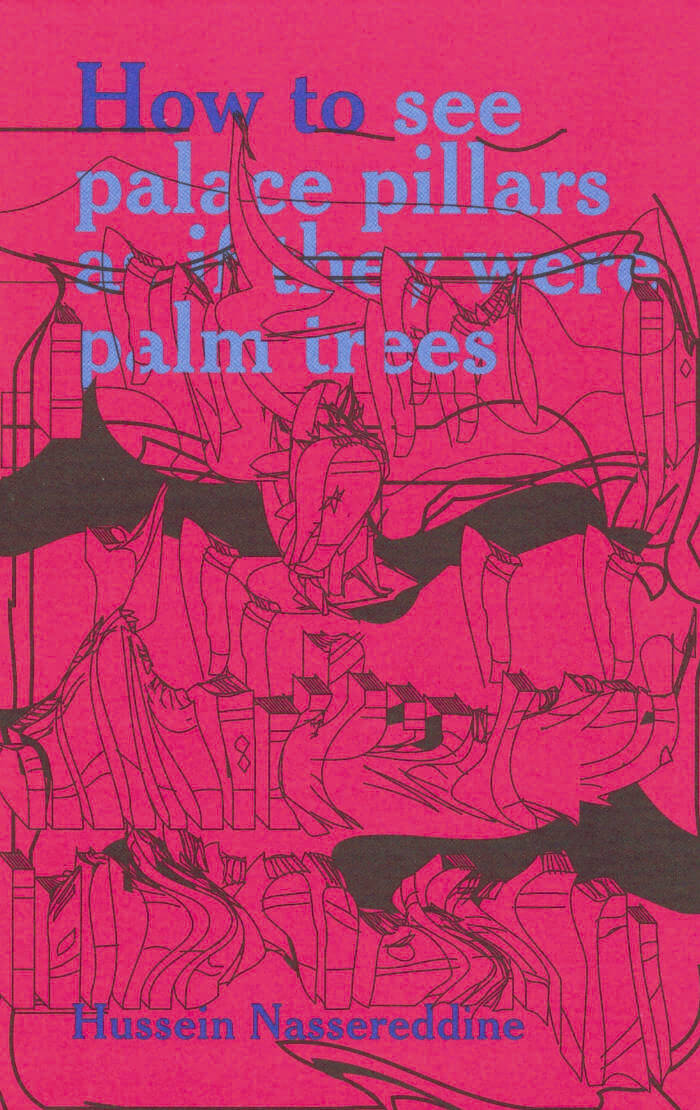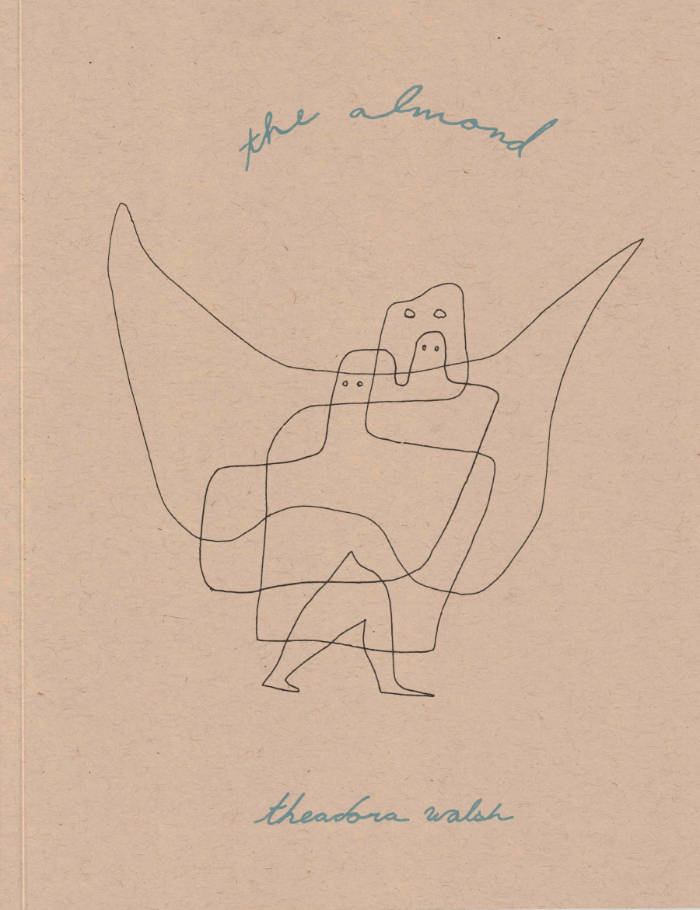
Software for Artists Book: Untethering the Web
Willa Köerner ed., Tommy Martinez ed.
A compendium of creative texts examining our complex and slippery relationships with new technologies.
What will the internet of the future make possible? Untethering the Web explores the technologies, strategies and anxieties that are coalescing in 2022 to shape a new digital paradigm. As naturalized citizens of today's always-online world and as survivors of a multiyear pandemic, the need to reform our digital tools and approaches is more pressing than ever before.
Evolved models for virtual convening, collective organizing and digital ownership are making this possible, and a reckoning for the platformed web and its monolithic tech giants is beginning to feel imminent—but how will it all unfold, and what new pitfalls will emerge? In conjunction with Pioneer Works' seventh Software for Artists Day, in October 2022, creators, technologists and members of our community share their visions for a flourishing digital multiverse, and how they imagine it manifesting over time.




